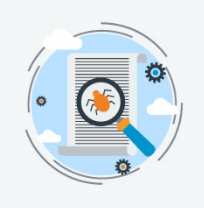| Software Testing Diploma |
| Written by Sue Gee | |||
| Tuesday, 14 March 2017 | |||
|
Alison has added four new courses about software testing methods and procedures to its portfolio and, as they need to be taken as a sequence, has combined them in a Diploma in Software Testing. Alison is an online training course provider catering for individual learners to enhance their employment opportunities. Rather than create its own learning materials, it sources them through external publishing partners. The four new software testing courses, each 2-3 hours in length and targeted at those with programming experience are:
The courses are listed as being from Channel 9, Microsoft's video channel. In fact the videos, which have a Creative Commons licence, were originated as NPTEL OpenCourseWare and intended as a 4-week course, culminating in a three-hour exam leading to a certificate. The NPTEL course consists of 20 approximately half-hour lectures, well annotated by slides, delivered by Prof Rajib Mall of the Department of Computer Science and Engineering Indian Institute of Technology (IIT) Kharagpur. For the Alison Diploma the same video lectures are split across eight modules (two per course) supplemented by Learning Outcomes at the beginning and a Lesson Summary at the end of each. There are also three assessments which are essentially comprehension tests that check you've paid attention and understood the principles and procedures covered. The first is slotted in as Module 5 after you've completed two weeks of study. After the fourth week has been completed Module 10 is the second assessment followed immediately by the final assessment. While you can complete both the course and and its tests for free, if you gain 80% or more in all the assessments and want a certificate this has to be paid for. Also if you don't want to be delayed for eight seconds between each topic (of which there are five in most modules) you can pay for an ad-free learning environment. Having completed this course you will be able to:
What you will not have done by the end of the course is any hands-on testing. This lack of any practical work seems to be the big drawback of this course and detracts from the value of the Diploma. On the other hand a Software Testing is a skill that is never not in demand (see Hottest Skills To Get You Hired), having a piece of paper that suggests it a topic you have studied is better than nothing at all.
More InformationRelated ArticlesFree Python Courses From Alison Hottest Skills To Get You Hired Software Testing with Visual Studio 2010 (Book Review) Software Testing Foundations, 4th Ed (Book Watch)
To be informed about new articles on I Programmer, sign up for our weekly newsletter, subscribe to the RSS feed and follow us on Twitter, Facebook or Linkedin.
Comments
or email your comment to: comments@i-programmer.info |
|||
| Last Updated ( Tuesday, 14 March 2017 ) |



